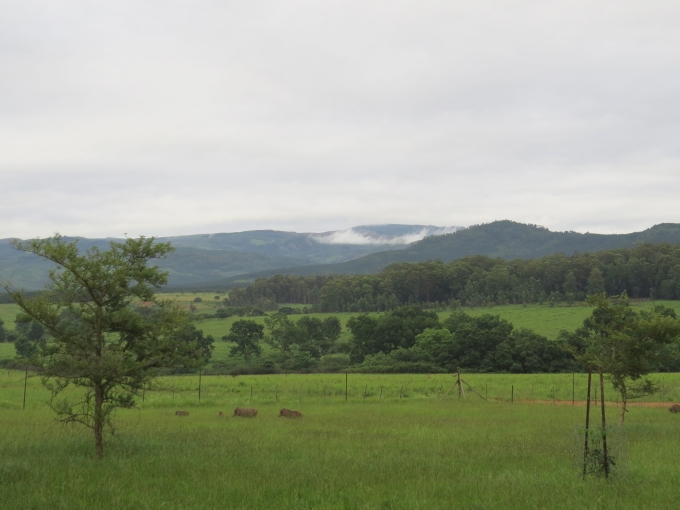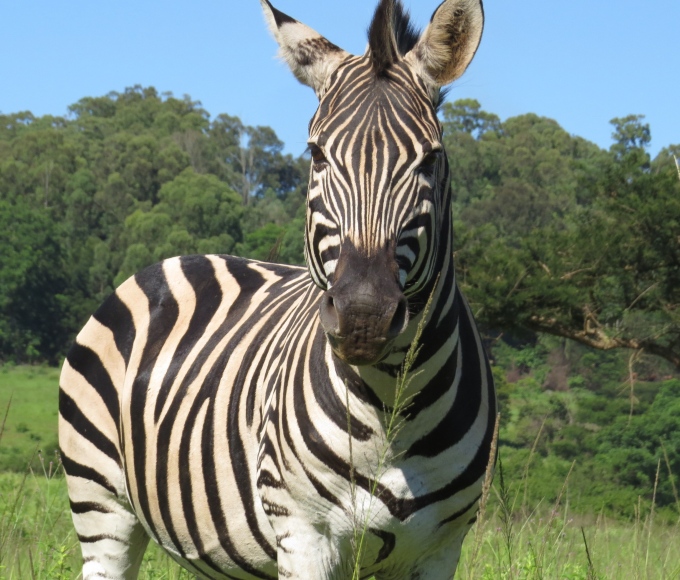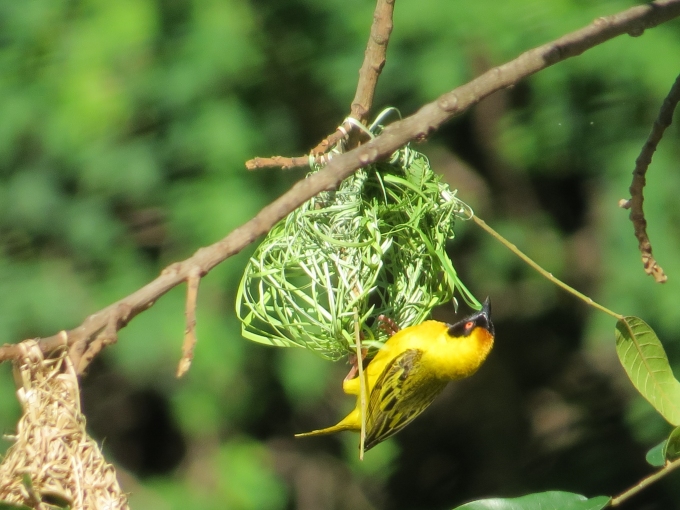Relaxing at Mlilwane Wildlife Sanctuary - Swaziland
/A family of warthogs woke us up this morning. They were just outside the hut and we could see them through the window. They scurried away when I opened the top of our Dutch entry door. In the near distance, I could see zebra, impala and bontebok grazing. A delightful way to start the day.

There was a thick mist hovering in the mountain valleys and it drizzled on and off during the morning. No matter. We were booked in for a couple of days and were quite content in our little hut, reading, writing, relaxing and watching the wildlife at our leisure.
Mlilwane Wildlife Sanctuary was Swaziland's first protected area. The Reilly family first settled in the area known as Mliliwane (Swati for “little fires” caused by frequent lightning hits) in order to mine tin in late 19th century. Because of over-hunting and development, the local wildlife diminished rapidly. Ted Reilly, son of the owner and ardent conservationist, created the sanctuary on his family's farm in the late1950s as a private endeavor when the British colonial government saw no need for another park beyond the Kruger to the north and Hluhluwe to the south. Today, Mlilwane is one of three major wildlife sanctuaries and several nature reserves in Swaziland.
Mlilwane is crisscrossed with self-drive trails and walking paths. David needed a well-deserved rest from gravel road driving and our bodies needed some exercise. The morning mist cleared and we decided to spend the day hiking and relaxing within the park. This park differs from many in that it has no big predators, and therefore, walking amongst the animals is allowed. We chose the Sendzela Path, a short loop into the valley and up again to the main camp, then returning to the backpackers' lodge. It was quiet and serene. Zebra came quite close before heading off in a different direction. Bontebok and impala were not as trusting and bolted as soon as they heard us coming up the path. Warthogs were curious and came close, then darted away when we made eye contact.
At the main camp, we couldn't resist buying a half hour of internet time to check e-mails and see what was going on in the world. We had worked up a sweat with our walk and stopped in the Hippo Haunt Restaurant for a cold Sibebe, the local Swazi beer. We chose a table overlooking the waterhole and had quite a show. David's keen eyes noted a croc almost at once … its staring, reptilian eyes barely poking above the surface of the water.
In the distance, sacred ibis shared a sandy piece of shoreline with moorhens, dikkops, egrets and Egyptian geese. We wondered if the birds became croc food now and then.
Not far away, bright yellow village weavers were busy making new nests which were artfully suspended from tree branches. They were very industrious birds as we watched them dart back and forth into the reeds to find the materials for nest-making. The male weavers build the nests as part of the courtship ritual for the females. If she likes the nest, she mates with the male. If she doesn't find the nest acceptable, she rips it apart and leaves him to start all over again. Sounds fair to me.
We were back to our hut in time for hot showers. We heard the dinner drums once again and headed for the braai area. Tonight's offering was a veggie bean stew with rice and salad for me and beef with rice and salad for David. We enjoyed chatting with a Dutch fellow who had just finished up working for Unicef in Kenya and a Danish fellow who was tramping around Africa studying Bantu tribes. Backpacker lodges are great places to meet interesting people.
Once again, we retreated to our cozy little hut. We could hear the monkeys chattering in the trees above, probably disappointed that we'd removed all the food that they'd been coveting since we had sat down. It was just beyond dusk and we could see the faint silhouettes of zebra and bonteboks still grazing on the fine, long grass on a nearby hill.
The days seem to be flying by, but each one is more enjoyable than the last.








